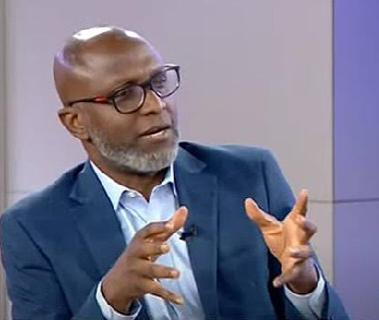Former presidential aide, Laolu Akande, has called on Nigerian governors to take decisive steps to repeal colonial-era defamation laws still enshrined in the criminal codes of 34 states.
Speaking during the My Take segment of the biweekly show, Inside Sources with Laolu Akande on Channels Television, Akande made a case for fair judicial processes and emphasized the urgent need for legal reforms that reflect democratic principles and respect for human rights.
Akande argued for a judicial process that upholds fairness and justice, particularly in addressing the allegations made by Farotimi in his book, Nigeria and Its Criminal Justice System.
The book reportedly contains significant accusations against prominent Nigerians, including renowned Senior Advocate of Nigeria, Afe Babalola.
“Are we entitled, as a people, to a fair judicial process that interrogates those allegations that Mr. [Dele] Farotimi has made in that his controversial book? There are allegations, no doubt. But the weight of those allegations—do they require us to seek a fair and honest, objective judicial process to interrogate them in deed whether they’re true or not?” Akande questioned.
Akande criticized the treatment meted out to Farotimi, noting that the activist had already begun to face punishment without any judicial determination of his case.
“Should we just act as though he should already begin to serve punishment? Because that is what is happening now. He was harassed and arrested in a manner that was not tidy. And even the police procedures were reportedly breached. He’s clearly beginning to suffer punishment even before we get the opportunity for interrogating the issues and the allegations that he raised in that book,” Akande said.
Akande further emphasized the importance of upholding the rule of law, questioning whether Nigeria’s leaders truly aspire to a democratic society or remain stuck in colonial oppression.
“Before we crucify Dele Farotimi, should we not ask ourselves: Do we want the rule of law? The rule of law under a democratic system? If yes, why do we still keep those colonially oppressive legal instruments intact?” he asked.
Akande commended Lagos and Edo states for decriminalizing defamation in their criminal codes, hailing the foresight of their leaders.
He singled out former Lagos State Governor Bola Ahmed Tinubu, now Nigeria’s President, and his then Attorney-General and former Vice President Yemi Osinbajo for their role in Lagos’ legal reforms.
He urged other governors to emulate this progress, pointing out that criminal defamation laws are remnants of a colonial system designed to treat Nigerians as subjugated subjects.
“Sixty-four years after Nigeria’s independence, are Nigerians in those states entitled to a life where their fundamental human rights are firm and protected as they’re meant to be since they’re not enslaved subjects? Because that was the purpose of the colonial statutes that gave us criminal defamation,” Akande argued.
Akande urged governors to take bold steps toward repealing these outdated laws, noting that the presence of such legal instruments undermines citizens’ rights and aspirations as free Nigerians.

 Join Daily Trust WhatsApp Community For Quick Access To News and Happenings Around You.
Join Daily Trust WhatsApp Community For Quick Access To News and Happenings Around You.


